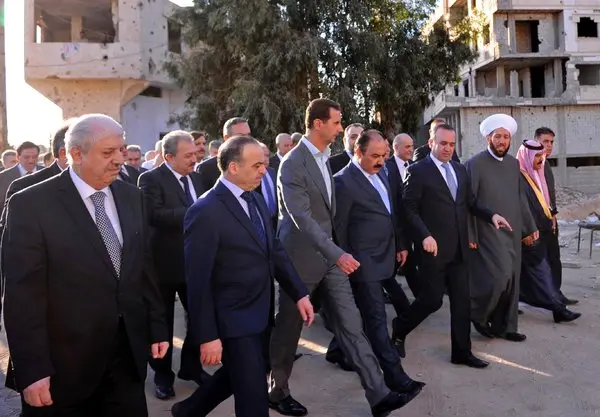Hezbollah Open to Ceasefire with Israel Amid Rising Tensions
Hezbollah, the Lebanon-based militant and political group, has indicated a willingness to discuss a ceasefire with Israel. This gesture comes amid escalating hostilities along the Lebanon-Israel border, bringing cautious optimism for a potential reduction in conflict.
Hezbollah’s Openness to Ceasefire with Israel
Recent communications from Hezbollah leaders suggest an openness to explore a ceasefire agreement with Israel, despite years of intense hostility.
- Intentions to stabilize the region: Hezbollah has hinted at reducing aggression to avoid full-scale conflict.
- Conditions for ceasefire: Although Hezbollah has expressed interest, they insist that the terms should respect Lebanese sovereignty and address issues they view as critical.
This shift in stance could pave the way for decreased tensions in the region, with both sides likely evaluating the potential benefits of a ceasefire.
Key Factors Behind Hezbollah’s Ceasefire Willingness
Several factors have influenced Hezbollah’s decision to consider a ceasefire with Israel:
- Regional stability pressures: Countries in the Middle East are pushing for stability to prevent further escalation.
- Economic challenges: Lebanon’s struggling economy has heightened pressure on Hezbollah to find ways to reduce conflict and focus on national issues.
- International scrutiny: Global powers are closely monitoring Hezbollah’s actions, creating additional pressure for a peaceful resolution.
These factors have likely contributed to Hezbollah’s willingness to consider diplomatic options.
Israel’s Response to Hezbollah’s Gesture
Israel has cautiously acknowledged Hezbollah’s openness to a ceasefire but remains skeptical of the group’s intentions.
- Focus on security: Israel is concerned about securing its borders and may impose strict conditions if discussions proceed.
- Military preparedness: Despite the possibility of a ceasefire, Israel continues to maintain a strong military presence in the region.
Israel’s guarded response highlights its commitment to ensuring any agreement prioritizes security for its citizens.
Global Reactions to Hezbollah and Israel’s Tensions
The possibility of a ceasefire has sparked international reactions, with key stakeholders expressing hope and cautious optimism.
- United Nations involvement: The UN has encouraged both parties to consider de-escalation efforts, with an emphasis on diplomacy.
- Arab states’ perspective: Many Arab countries are pushing for stability and have urged Hezbollah to seriously consider peace options.
- Western allies: The U.S. and European nations have expressed support for any steps that could lead to long-term peace in the Middle East.
The international community’s involvement reflects the far-reaching impact of the conflict.
Potential Implications of a Hezbollah-Israel Ceasefire
A ceasefire between Hezbollah and Israel could have significant implications for the region:
- Reduced regional tensions: A ceasefire would alleviate hostilities and promote stability in the Middle East.
- Economic benefits: Lowering conflict intensity could allow Lebanon to focus on recovery and economic reform.
- Improved diplomatic relations: A ceasefire could serve as a foundation for broader diplomatic efforts between Lebanon and Israel.
While the path to peace is complex, a ceasefire could be a positive step toward stability.
Hezbollah’s openness to a ceasefire with Israel is a pivotal development, potentially marking a new chapter in their complex relationship. Although many challenges remain, both parties have an opportunity to pursue stability and foster a more secure Middle Eastern landscape.






